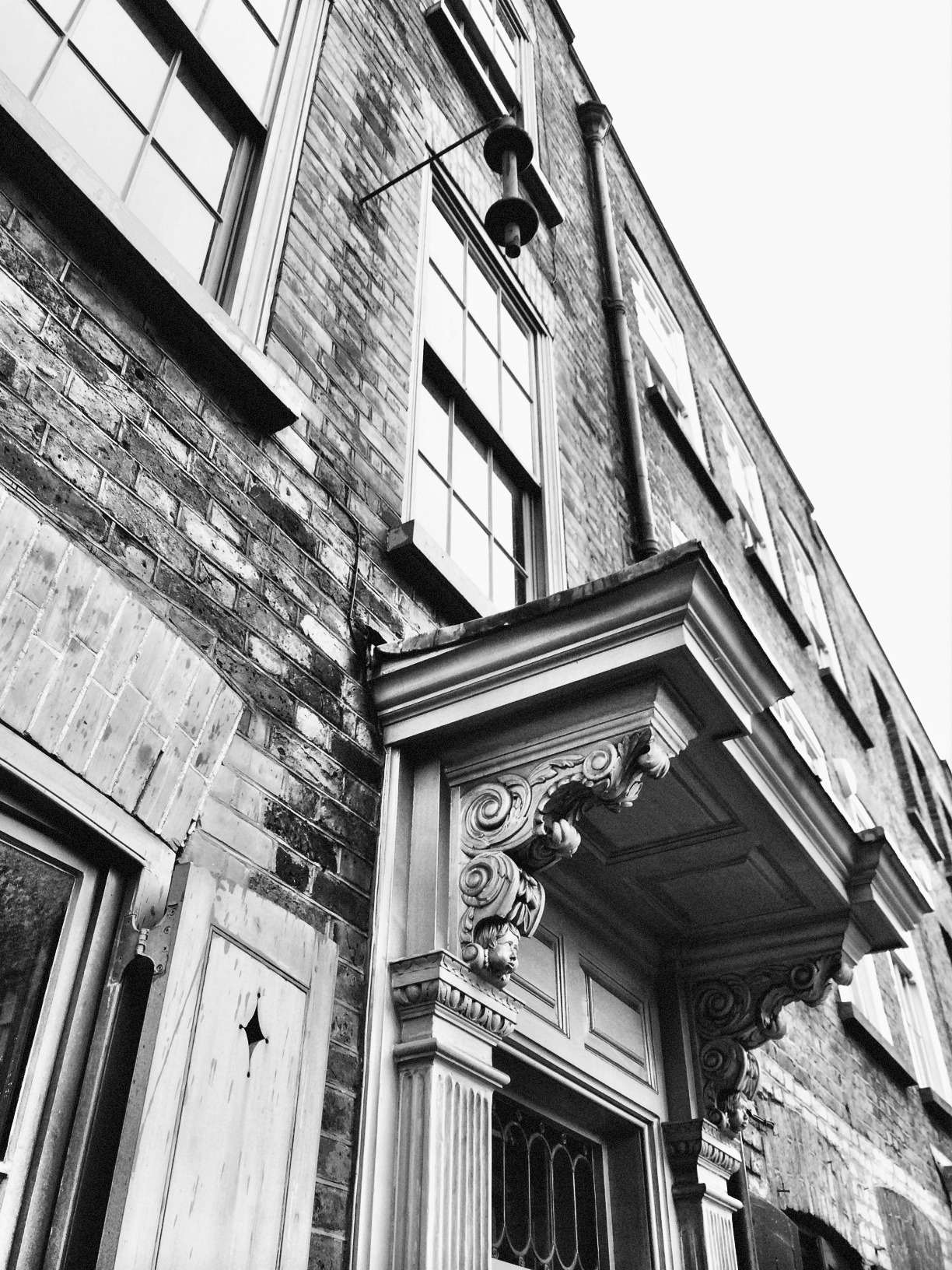The Huguenots were protestants who were persecuted and forced to flee France after the revocation of the Edict of Nantes in 1685. As a religious dispute, it was a bloody business, with executions, slavery and forced conversions. Many managed to escape and resettle elsewhere.
The word "refugee" was introduced to the English language as huge numbers of Huguenots moved into other countries. There were so many refugees, that some sources estimate over 90% of people in South East England have Huguenot ancestry.
Many of these refugees brought their skill in silk weaving to Britain, playing an integral role in the development of England's textile industry.
Houses in Spitalfields display spools above the doors of homes where Huguenot silk weavers resided.
The Huguenots brought a wealth of talent, also sharing their skills in printing, bleaching and dying.
One Huguenot family held the secret recipe for "Cardinal Red", ironically giving them a monopoly to supply cloth to the Vatican.
In addition to silk, a number of Huguenots set themselves up in calico printing. Peter Mauvillain was one of the most successful, a true pioneer of the industrial revolution who employed over 200 people.
The Huguenots may be the original refugees, but they are only one example of a dynamic migrant group that worked hard to assimilate into their adopted society and create opportunities for prosperity -- for both themselves and their hosts.



No comments:
Post a Comment
I would love to hear from you!